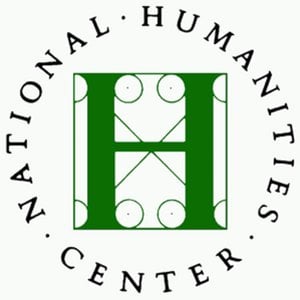
The National Humanities Center is located on the campus of the Triangle Universities Center for Advanced Studies, Inc. (TUCASI) at Research Triangle Park. TUCASI is a section of land, about 400 acres, within RTP that was set aside by founders to be a physical representation of the three flagship universities in the Triangle. Over the next few months we hope to tell you more about the organizations located within TUCASI, or as we like to call it, our “park within a park.” The press release below was posted on the National Humanities Center website. Over the past 35 years they have brought over 1,300 fellows to North Carolina to study topics spanning a wide breadth of subjects. Congratulations to their staff and many fellows on all their hard work over the years!
Research Triangle Park, N.C. The National Humanities Center, one of the world’s leading institutes for advanced study, is celebrating 35 years of success in bolstering the strength of the liberal arts and affirming the importance of the humanities in American life. Since its launch, the Center has welcomed nearly 1,300 scholars representing the full scope of the humanities from throughout the United States and 37 countries worldwide. As a result of their time at the Center, these scholars have produced over 1,500 books as well as other significant contributions to their fields through countless articles, reviews, talks, and other scholarly efforts.
To commemorate its anniversary, the Center will host a reception on April 10 for trustees, friends, and Fellows from the past 35 years. The evening will also include a talk by eminent historian of science Janet Browne of Harvard University. Browne, who was a visiting scholar at the Center last spring, is known for her acclaimed two-volume biography of Charles Darwin that appeared in 1995 and 2002.
Charles Frankel, founding director, at the dedication of the Archie K. Davis building, April 7, 1979
“We are honored to welcome Janet Browne back to the Center as part of the celebration of our 35th anniversary,” said National Humanities Center president and director, Geoffrey Harpham. “She is one of the latest in a long line of brilliant scholars who have made the Center their home for a time and we are pleased to have been able to support all of their many contributions to the humanities over the past three and a half decades.”
During the evening’s events, the Center will also celebrate the approaching conclusion of its capital campaign, “Where the Humanities Take Root, The Campaign for the National Humanities Center.” Launched in July 2010 with an initial goal of $13 million, the campaign has raised over $18.8 million to date to endow new fellowships, extend the Center’s award-winning online seminars and resources for high school teachers, and create opportunities for sharing advances in the humanities with the greater public.
The Center began operations in the fall of 1978 with its first class of Fellows and celebrated the dedication of its facility, the Archie K. Davis building, at a dignitary-filled ceremony on April 7, 1979 as that first fellowship year drew to a close. The Center’s building is named in honor of Archie K. Davis, the former chairman of Wachovia, who was instrumental in the creation of the Research Triangle Park and in bringing the National Humanities Center to North Carolina.
About the National Humanities Center
The National Humanities Center (nationalhumanitiescenter.org) is one of the world’s leading institutes for advanced study and the only one dedicated exclusively to the humanities. Privately incorporated and governed by a distinguished board of trustees from academic, professional, and public life, the Center was planned under the auspices of the American Academy of Arts and Sciences and began operation in 1978. It provides a national focus for the best work in the liberal arts, drawing attention to the enduring value of ancient and modern history, language and literature, ethical and moral reflection, artistic and cultural traditions and critical thought in every area of humanistic investigation. By encouraging excellence in scholarship, the Center seeks to ensure the continuing strength of the liberal arts and to affirm the importance of the humanities in American life.